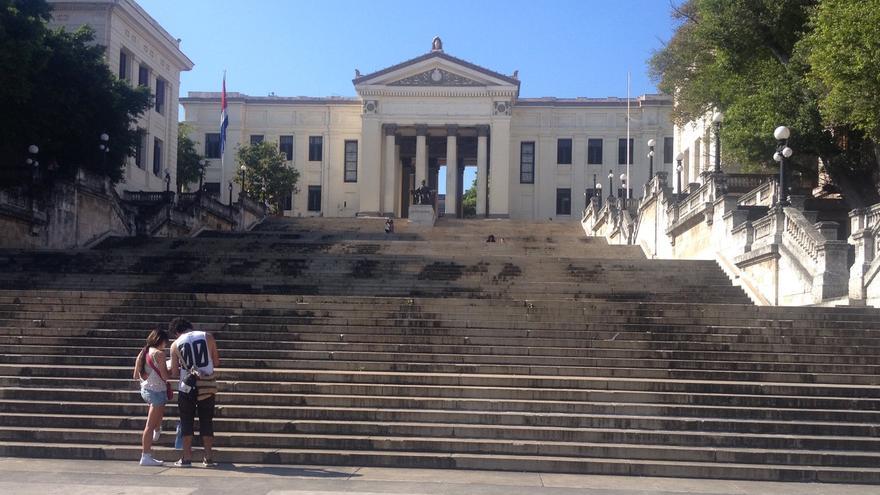
![]() EFE/14ymedio, Havana, 17 September 2019 — The fuel crisis that Cuba suffers, and that is affecting the daily life of citizens, has forced Cuba’s main universities to readjust their schedules, reduce class times, and even close departments for one or two days a week.
EFE/14ymedio, Havana, 17 September 2019 — The fuel crisis that Cuba suffers, and that is affecting the daily life of citizens, has forced Cuba’s main universities to readjust their schedules, reduce class times, and even close departments for one or two days a week.
José Antonio Echeverría Technological University of Havana (Cujae), the country’s leading engineering and architecture school, will close its doors on Mondays and Tuesdays, so there will only be classes from Wednesday to Friday until further notice, as reported this Monday by the first vice minister of Higher Education, Martha Mesa.
Meanwhile, at the University of Havana (UH) classes have been suspended on Fridays, and on the rest of the working days their duration has been shortened and the faculties close at 3:00 in the afternoon instead of 6:00 as usual.
The official press reported new energy saving measures that are applied these days at the University of Matanzas and the Marta Abreu Central University de las Villas (UCLV) of Villa Clara.
With these measures, the Government tries to reduce the consumption of electricity and fuel for transport at a time when Cuba faces what could be its worst energy crisis since the 1990s, during the Special Period.
Cuban president, Miguel Díaz-Canel, has assured that the Island is not at the beginning of another Special Period and that the current crisis is a “temporary situation” caused by the resurgence of the US embargo and the restrictions of the Donald Trump Administration on Venezuelan oil shipments.
Cuba produces enough oil to cover 40% of its needs (mainly to generate electricity in thermal plants) according to government data, and the rest it receives mostly from Venezuela.
The arrival of diesel fuel in Cuba was interrupted last Saturday and no more ships will arrive until October, a situation that is affecting transport and industrial activities in the country, as well as generating fears of possible power outages.
On the street the effects have been noticed, with more people looking for transportation from the sidewalks, overflowing urban buses, a large share of the gas stations with closed diesel pumps and long lines at those which are still open.
The authorities assured that the supply of diesel for private cars will not cease, although urban and interurban public transport by road and rail has been restricted to minimum services.
Last Thursday, several ministers appeared on the Roundtable TV talk show, together with Miguel Díaz-Canel, to reassure the population and assure them that there would be no problems, and at the same time that they detailed all the reductions that will have to be faced as this situation is resolved and that will affect all sectors.
_________________
The 14ymedio team is committed to serious journalism that reflects the reality of deep Cuba. Thank you for joining us on this long road. We invite you to continue supporting us, but this time by becoming a member of 14ymedio. Together we can continue to transform journalism in Cuba.
